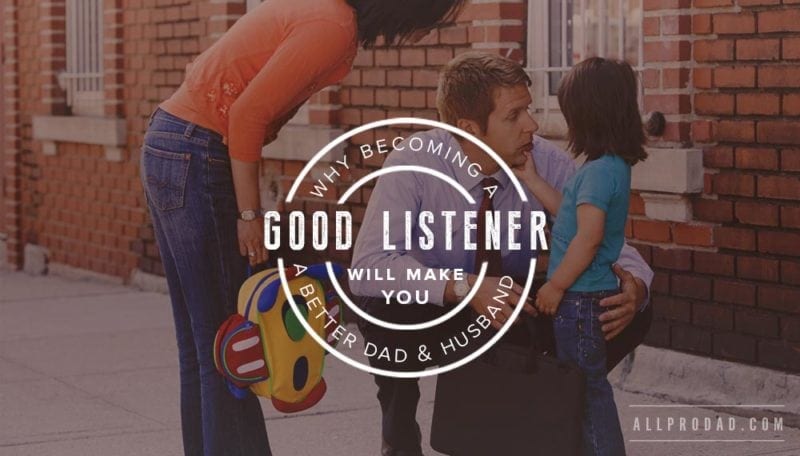Scientific studies show that most men aren’t as good at listening as women. Men don’t have the same neural connections between our brain hemispheres as females do and this means some information we take in gets lost along the way. We really have to work hard at some cognitive skills—especially listening. And listening is essential to good parenting.
Listening is essential to good parenting.As author Catherine Wallace writes, “Listen earnestly to anything your children want to tell you, no matter what. If you don’t listen eagerly to the little stuff when they are little, they won’t tell you the big stuff when they are big, because to them all of it has always been big stuff.” Here are 10 ways to know you’re really listening to your kids.
1. You make listening a predictable routine.
Most relationships are made or broken by our habits. So get used to listening. Make it a habit. Family communication depends on it. Make yourself practice until listening to your children is second nature.
2. You don’t talk over your kids, yell when you don’t like what they say, or cut them off mid-sentence.
Kids tend to give up on communication when it makes them feel bad. Monosyllabic utterances from teens often can be explained as simple self-defense.
3. The moment you come into the house, you focus on your children.
Sit down with your children, get on eye-level, and focus.
4. You put down what you’re doing and ask them questions.
There’s typically a short window of opportunity to connect with a child’s recent experiences. That other stuff you’re doing can wait. Make it a tradition to sit together at the kitchen table while they tell you about their day.
5. You listen with your eyes.
Naomi famously told her father, “Daddy, please listen to me with your eyes.” He thought he could get away with checking his email while she told her story. She knew better.
6. You repeat back what children tell you.
This way they know you’re following the story. “Let me get this right. You finished finger painting and then you ate your sandwich? That’s cool.”
7. You move beyond simple reflection.
Ask questions that move the story along. “Tell me about the picture you painted.” “How did it make you feel when you struck out in baseball?”
8. They don’t interrupt you as much.
This will sound counterintuitive, but think about it. If kids know you really listen when they talk, then they’ll be less likely to interrupt incessantly. They interrupt because they’re desperate for your attention.
9. You remember what they said and bring it up again.
At the end of the night, run through the things your kids shared with you. See how many you can remember and then follow up again several days later.
10. Your listening patterns define family relationships.
It’s not that complicated. Your teenager is simply an evolution of a younger child. Raising teenagers starts with listening to them when they’re preteens. Listening is not only preventative maintenance; it’s a beautiful relationship builder.
Sound off: What do you do to make sure you are listening to your kids?











Huddle up with your kids and ask, “Do you think I listen to you? Why or why not?”